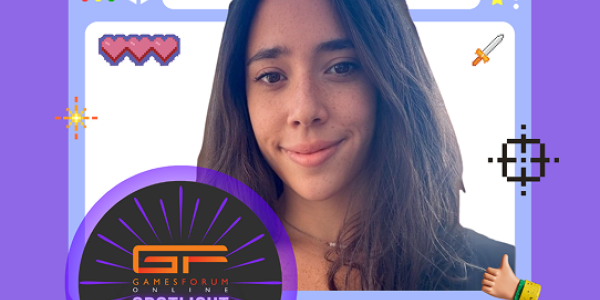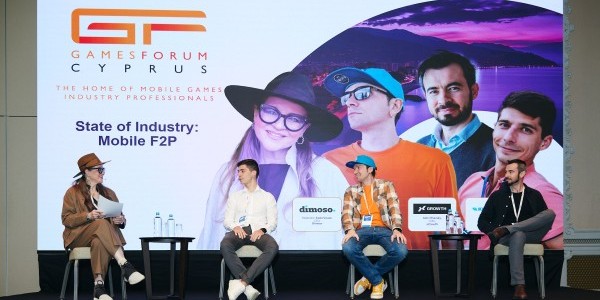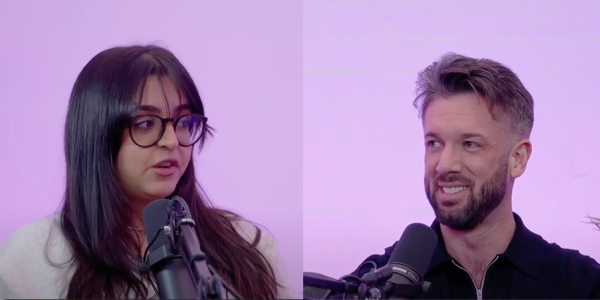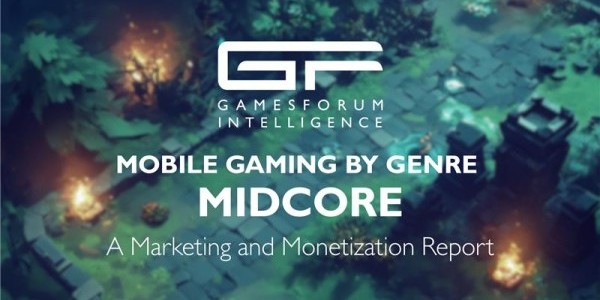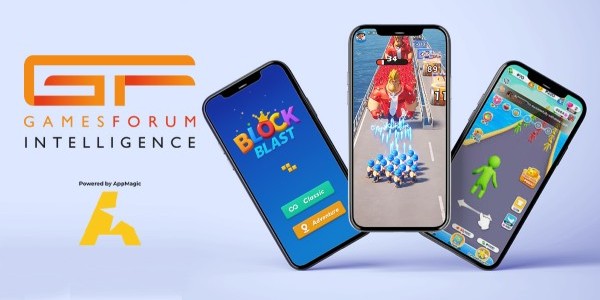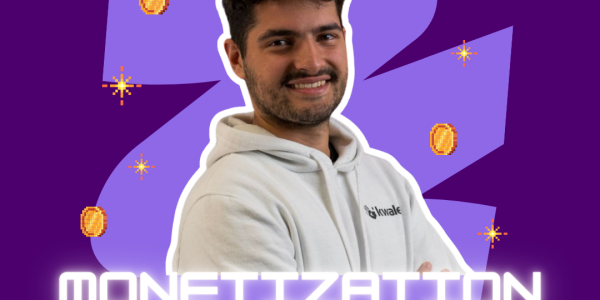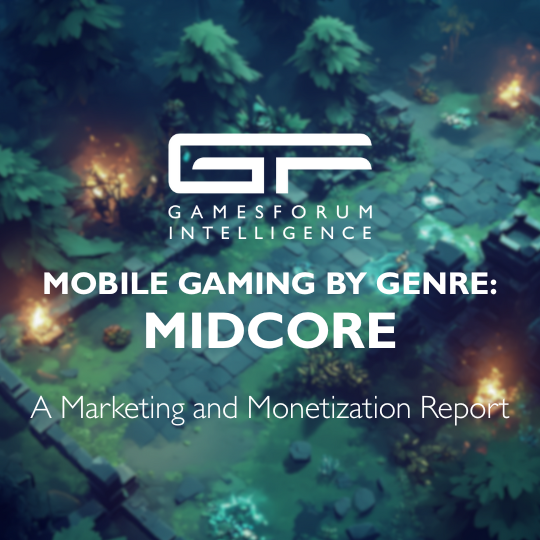Community Spotlight: Odeeo’s Zack Weiss

We sat down with Zack Weiss, Global Business Development Manager at Odeeo, to unpack his insights on the evolving mobile gaming landscape. In this interview, Weiss explores opportunities and challenges in European and Middle Eastern mobile gaming, including in-app monetization, non-intrusive audio ads, and sponsorships. He also discusses the future of mobile gaming with AR/VR/cloud gaming, data privacy concerns, and indie developer hurdles. With a unique in-game audio ad perspective, Weiss highlights Odeeo's adaptable strategies and ties to the gaming community, offering insights into staying relevant in this ever-changing industry.
In terms of EU and MENA mobile gaming, what sets them apart in opportunities and challenges from global markets?
MENA and Europe have great potential when it comes to gaming. Some opportunities are the fact that both regions continue to experience user growth, build infrastructure (high speed and easily accessible internet) and sustain a culturally diverse group of players. Some things that could be difficult is monetization specifically in the MENA region. The different payment systems (cash focused), it being hard for many gamers to access credit cards as well as high transaction fees can make things more difficult. GDPR and other compliance issues make EMEA more complicated, but some of the rulings coming out of Europe may help the gaming market evolve faster in the long run as they encourage more competition.
Across the mobile gaming landscape, what are the most promising and effective in-app monetization strategies for developers to consider - like audio?
It seems that most publishers have maxed out the first generation of in-app ad mon solutions and many, especially in the casual or hyper-casual categories, are looking to evolving formats. For example, non-interruptive in-game audio ads that don’t interfere with gameplay, IAPs like consumable and non-consumable items and sponsorships or product placements with brands to promote their products in a game environment. Successful in-app monetization strategies have a mix of these approaches to cater to different users and maximize revenue potential. The most important thing is to ensure that the gameplay experience remains enjoyable and engaging.
User acquisition is a major hurdle for mobile games. How can in-game audio advertising be leveraged by developers to acquire new players more effectively?
In-game audio can be leveraged through targeted ad campaigns, like using demographic data or user behavior patterns to ensure your reaching interested users. For contextual placement, audio ads can be played in games that share a common theme, a developer with a food based game could advertise in any food, cooking or shopping game to reach already interested players. Audio is also great for localized messaging and tailoring messages to regional markets. If you are able to show relevant and creative audio ads in the user's language, there will be a higher probability of acquiring that user. Performance optimization, by collecting player feedback and data it allows the developers to make iterations on ad content and placement. Over time this will result in a better user experience driving performance metrics like install rates.
With technologies like AR/VR and cloud gaming gaining traction, how will these advancements likely impact the future of mobile gaming?
AR,VR, and cloud gaming will significantly impact the future of mobile gaming. Immersive experiences will be more available on mobile devices. Players can interact with virtual environments and characters in ways that were previously limited to console or PC. AR can overlay digital elements onto the real world, creating unique gaming experiences that blend virtual and physical environments. This opens up new genres and gameplay mechanics tailored to mobile platforms. Cloud gaming allows players to stream high quality games directly to their mobile devices, regardless of their hardware. This lowers the bar to entry for high end gaming experiences making it more accessible for the average gamer.
The key for success is to effectively monetize as early as possible, and to work with partners who can really support them operationally and strategically. One of our earliest partner studios was GameJam, an indie studio out of Vietnam, and we were able to work closely with them to drive meaningful revenue for key titles. But it was more than just installing our SDK, it was a real partnership between our teams that enabled them to scale quickly and see a 15% ARPDAU uplift.
Data privacy regulations are becoming increasingly prominent worldwide. How can mobile game developers ensure compliance while still gaining valuable data insights from players?
Ensuring compliance with data privacy regulations while receiving data insights from players is important for mobile game developers. Developers should stay informed about relevant data privacy regulations such as GDPR (in Europe), CCPA (in US), and other requirements these regulations impose on data collection, processing, and storage. They must be transparent and provide clear information to users about how their data will be collected, used, and shared. This includes updating privacy policies to reflect these practices and ensuring it is easily accessible within the game. Obtain valid consent from users before collecting any personal data and explain the purpose of data collection and allow users to easily withdraw consent at any time.
The indie game development scene is flourishing. What are some of the key challenges faced by independent studios, and how can they be better supported for success?
Indie studios often operate with limited financial resources, manpower, and access to high-end technology. This can restrict their ability to compete with larger studios in terms of production values. Another thing is it's hard to get noticed, among the large number of mobile games released each day is a challenge. Indie developers struggle with discoverability on crowded app stores, making it difficult to attract an audience without substantial marketing efforts.
The key for success is to effectively monetize as early as possible, and to work with partners who can really support them operationally and strategically.One of our earliest partner studios was GameJam, an indie studio out of Vietnam, and we were able to work closely with them to drive meaningful revenue for key titles. But it was more than just installing our SDK, it was a real partnership between our teams that enabled them to scale quickly and see a 15% ARPDAU uplift.
Player preferences in mobile gaming can be quite dynamic. How does Odeeo stay informed about these evolving preferences and adapt their strategies accordingly?
Most critically, our close relationships with developers and being part of the mobile gaming community help us stay on top of trends and get direct feedback from our partners. As far as insights into advertising behaviors, Odeeo’s culture is built on analytics and understanding how our products impact player behavior, retention, and engagement. As far as broader trends in the industry, we’re all avid mobile gamers ourselves and are seeing firsthand how game trends are evolving.
With the mobile gaming industry constantly evolving, how will in-game audio advertising likely adapt and stay relevant in the future?
In-game audio ads are just at the beginning of becoming mainstream, and there are so many ways the format can evolve. We expect developers to find new and interesting ways to include the unit in their gameplay. More interestingly, we expect that as advertisers become more comfortable with the format they will start to experiment more aggressively through creative executions and testing. If the arc of in-game audio ads is an opera, we’re only in the beginning of the opening act.




